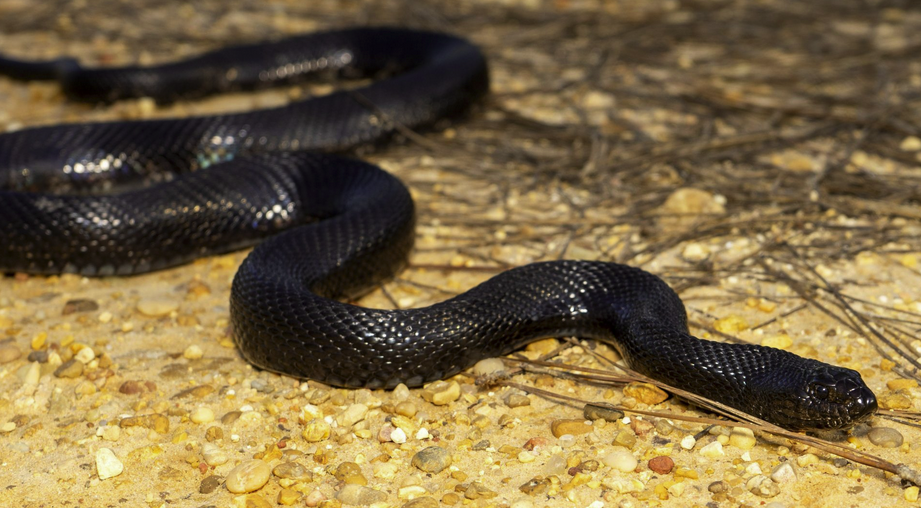
August 23, 2025
Written by Mike Hobson
In February 2020, US Fish & Wildlife Service (FWS) classified 324,679 acres in South Alabama and Mississippi as critical habitat for the endangered black pine snake. The designation made the land restricted to development and subject to rigorous regulation. More than 93,000 acres were private land. In public meetings, FWS told impacted landowners that restrictions would not be implemented. But Gray Skipper, whose family owns and manages a timber operation on 10,000 of those acres, sued the federal agency, claiming there is little evidence the snake exists on his land. Represented by the Pacific Legal Foundation, the Skippers and other affected landowners asked the court to set aside the habitat designation. https://landreport.com/alabama-landowner-battles-fws
Black Pinesnakes are a large, federally protected constrictor species native to the pine savannas of south Mississippi. These snakes are big and may reach lengths of 6 feet. They are solid-black, thick-bodied snakes with strongly keeled scales. Young individuals may have a lighter brown or purple hues and can have a blotched pattern. Belly is solid black or bluish black. These snakes often utilize gopher tortoise burrows, stump holes, and loose soils for foraging and refuge. They are active hunters in the day, but may be active at night during warm months (Belher & King, 1979). Pinesnakes primarily eat mammals. It is illegal to kill or harass this species. This species may hiss upon encounter but are harmless and nonvenomous. https://msherps.com/snakes/black-pinesnake/
Conservation is a twisted liability for Gray Skipper and the Alabama landowner feels betrayed by his own government. Despite Skipper’s family allowing decades of public access to private property for conservation, scientific research, and recreation, the federal agency dropped a critical habitat designation on 10,000 of the family acres in the name of a threatened snake that doesn’t live on the ground. “No good deed goes unpunished,” Skipper exclaims. “Where has reason gone in this country?”
Represented by Pacific Legal Foundation (PLF), Skipper has now succeeded in a legal battle as the lead plaintiff in a suit against FWS and the Department of the Interior (DOI). “Office bureaucrats that preach about saving species and taking care of the land are hypocrites because they do nothing but hurt their own cause by breaking trust with private citizens,” Skipper contends. “What landowner wants FWS to show up at their gate? Really, who in the hell actually trusts FWS anymore?”
Service’s designation of Alabama forestland as critical habitat for the black pinesnake, ruling that the agency acted arbitrarily without scientific evidence. The ruling is a victory for the Skipper family and others who collectively own more than 35,000 acres of forestland that was subject to the critical habitat designation.
“This opinion makes it clear that the FWS cannot claim that areas are occupied by a species without evidence, and that it cannot claim that these harmful designations do not affect property owners,” said Jeffrey McCoy, an attorney at Pacific Legal Foundation. “Judge Beaverstock recognized that the Fish and Wildlife Service mistakenly and unlawfully designated our clients’ property as occupied. We are happy that the harmful designation has been removed and that our clients will not be needlessly restricted in using their land.”
The Skipper family has owned and managed Clarke County timberland since 1902, voluntarily participating in Alabama’s Wildlife Management Area program for 60 years until the Service’s 2020 designation forced their withdrawal. The Service based its “occupied” determination on one pinesnake sighting in 20 years, despite a comprehensive state survey finding no snakes on the property.
The court also found the Service ignored obvious economic harm, acknowledging the designation affects $180 million worth of private land while refusing to measure actual damage to families like the Skippers.
The case builds on Pacific Legal Foundation’s 2018 Supreme Court victory in Weyerhaeuser v. U.S. Fish and Wildlife Service.
The case is Skipper v. U.S. Fish and Wildlife Service. PLF represents Thomas Gray Skipper, Skipper Land Holdings LLC, Phalyn LLC, and Forest Landowners Association free of charge.
After a years long fight, the Skipper family has won a milestone victory overturning the Fish and Wildlife Service’s designation of critical habitat for the black pine snake on their property. Here’s a comment on the ruling from Jeff McCoy, an attorney at Pacific Legal Foundation:
“This opinion makes it clear that the FWS cannot claim that areas are occupied by a species without evidence, and that it cannot claim that these harmful designations do not affect property owners. Judge Beaverstock recognized that the Fish and Wildlife Service mistakenly and unlawfully designated our clients’ property as occupied. We are happy that the harmful designation has been removed and that our clients will no longer be needlessly restricted in using their land.”
This outcome restores the Skippers’ freedom to manage land that has been in their family since 1902 as they see fit.
Pacific Legal Foundation is a national nonprofit law firm that defends Americans threatened by government overreach and abuse. Since our founding in 1973, we challenge the government when it violates individual liberty and constitutional rights. With active cases in 34 states plus Washington, D.C., PLF represents clients in state and federal courts, with 18 wins of 20 cases litigated at the U.S. Supreme Court.


